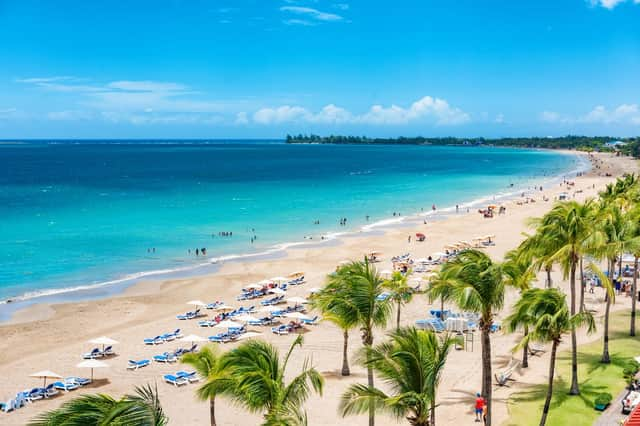When foreign holidays will resume in England - and how the traffic light system will work


Further easing to lockdown measures in England are due to come into effect in the coming weeks, with the Prime Minister expected to give the green light to foreign holidays from next month.
Boris Johnson is due to announce an update on lockdown, travel and mass events on Monday (5 April), including plans to allow trips abroad.
Advertisement
Hide AdAdvertisement
Hide AdHere’s what to expect from the announcement and the latest rules on international travel.
When can I go on holiday?
It is currently illegal to travel abroad for holidays and other leisure purposes in the UK, with foreign trips only permitted if it is essential, such as for work purposes.
Current legislation means that people living in England and Wales risk being issued with a £5,000 fine for breaking the rules.
In Scotland, it is currently illegal to travel abroad for holidays and other leisure purposes. The Scottish government has said that foreign travel will not be possible before 17 May and maybe for some time after.
Advertisement
Hide AdAdvertisement
Hide AdSimilarly, in Northern Ireland it is illegal to travel outside the Common Travel Area (UK, Republic of Ireland (ROI), Isle of Man and Channel Islands), unless you have a legally permitted reason to do so.
Northern Ireland is yet to confirm its plans for holidays and travel, but chief medical office Dr Michael McBride has said it would be “premature” to book a foreign summer trip.
On Monday (5 April), Mr Johnson will outline the government’s plans for easing restrictions on foreign travel, ahead of its global task force report on 12 April.
The PM is expected to give the green light to holidays abroad in England from 17 May at the earliest, meaning international travel could resume in just six weeks’ time.
Advertisement
Hide AdAdvertisement
Hide AdThe plan to allow foreign travel comes following falling Covid infection rates across the country and the success of the vaccine rollout so far, with more than five million people now fully vaccinated against coronavirus.
It is understood that from 17 May, the ban on international travel will be replaced with a risk-based “traffic light” system, with countries to be rated as red, amber or green.
How will the traffic light system work?
The traffic light system for foreign travel will rate countries using a colour coded system, labelling destinations as either red, amber or green.
This rating will be based on a range of factors, including the proportion of the population that has been vaccinated, rates of Covid infection, emerging new variants, and the country’s access to reliable scientific data and genomic sequencing.
Advertisement
Hide AdAdvertisement
Hide AdTravellers returning to the UK from “green” rated countries will not be required to self-isolate, although pre-departure and post-arrival Covid tests will still be needed.
Those returning from counties classed as “amber” or “red” will be required to self-isolate or enter quarantine.
Which countries could be on the green list?
Officials have said it is still too early to predict which countries would be on which list and are continuing to advise against booking summer holidays abroad.
Any restrictions that may be in place for overseas travel could see Brits choose to sun international travel in favour of a domestic holiday, with scientific experts recommending that staycations should be encouraged over foreign trips this year.
Advertisement
Hide AdAdvertisement
Hide AdHesitancy towards the Covid-19 vaccine across parts of mainland Europe could see many popular tourist destinations avoided by UK holidaymakers this year, with much of Europe expected to be added to the red list.
However, the US, Israel, Dubai, Malta and the Caribbean are more likely to be included on the green list, according to reports, as vaccinations rates are good in these countries, meaning they are deemed less high-risk.